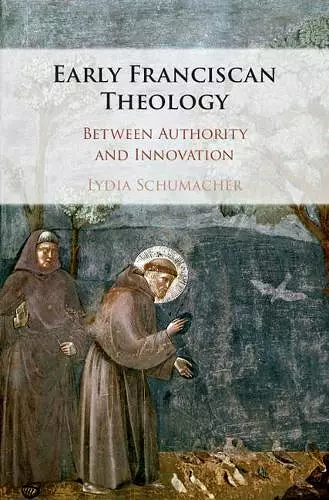Early Franciscan Theology
Between Authority and Innovation
Format:Hardback
Publisher:Cambridge University Press
Published:4th Jul '19
Currently unavailable, and unfortunately no date known when it will be back

Demonstrates the innovativeness of early Franciscan theology, contesting the longstanding view that it simply rehearses the views of earlier authorities.
Redefines scholarly understanding of the Franciscan school, which dominated the medieval university, rethinking its relationship to modernity and outlining a new approach to reading scholastic texts that is essential for all students of medieval thought.Franciscan theology before Bonaventure has long been regarded as a relatively unoriginal attempt to systematize the tradition of Augustine, which prevailed in the West for most of the earlier Middle Ages. In this book, Lydia Schumacher aims to demonstrate the innovative aspects of early Franciscan theology by examining the historical, philosophical, and religious contexts in which it was developed, and by highlighting how thinkers from this period deployed authoritative sources like Augustine as 'proof texts' for their own novel positions. She thereby exposes the continuity between the early and later Franciscan schools, which have normally been perceived as distinct from one another. Schumacher also emphasizes the ethos that inspired the development of medieval Franciscan thinking and distinguishes it from any modern intellectual trends with which it has been associated. Ultimately, Schumacher lays the foundation for future efforts to recover Franciscan theology in the contemporary context on its own terms.
'Schumacher's book is a magnificent volume that sheds incredible light on a very specific strand of medieval thought.' Harrison Perkins, Anglican and Episcopal History
ISBN: 9781108498654
Dimensions: 235mm x 157mm x 19mm
Weight: 670g
320 pages